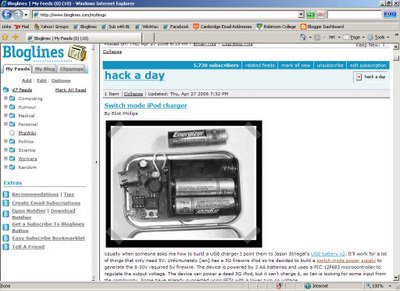This webpage is a rather exciting read.

We have all seen these banners before or heard people say "Firefox is Faster, Firefox has Lower Requirements, Firefox is Secure, Firefox defends me from all Spyware, etc." How misleading is it? Read on.
There's some great stuff in here, and it's all well thought-out, well reasoned, and extensively backed up with other sources. I've drawn out some of these.
This page discusses a study of browser speeds, under Linux, Mac and Windows. There's good evidence that Opera is in fact by far the fastest browser, and also that Internet Explorer outperforms Firefox in nearly all categories.
I've heard some complaints about Firefox using excessive amounts of memory when running.
This blog post from the Mozilla team gives some more details.
What I think many people are talking about however with Firefox 1.5 is not really a memory leak at all. It is in fact a feature.
To improve performance when navigating (studies show that 39% of all page navigations are renavigations to pages visited < 10 pages ago, usually using the back button), Firefox 1.5 implements a Back-Forward cache that retains the rendered document for the last few session history entries. This can be a lot of data. It's a trade-off. What you get out of it is faster performance as you navigate the web.
Does anybody else remember the old joke about fixing bugs? If you get stuck, just label the current bug as a "feature" and move on. Personally I'd rather not use up piles of system memory just in case I press the back button ten times. Especially since I very rarely do that anyway.
The page smashes the myth about Internet Explorer not supporting extensions with
this page from the Microsoft Developer Network.
Browser extensions, introduced in Microsoft Internet Explorer 5, allow developers to add functionality to the browser and enhance the user interface.
There's extensive information about how to go about coding these yourself. The only thing that's missing seems to be a real drive to produce these things. The only ones I've seen have tended to be produced by big companies, e.g. MSN, Google, Yahoo and eBay have all produced downloadable toolbars. If only Microsoft had put effort into encouraging the creation of new extensions. But it's against their mindset - I think extensions will always be a predominantly open source thing. That's where people are positively encouraged to add code to the browser.
Interestingly the page features the following paragraph at the bottom:
Firefox Fanboys are so scared people may actually read this page and make up their own minds that they have gone to great lengths to censor any discussion of this page. Anywhere this page appears they desperately try to have the information removed. So far they have been successful in getting this page banned from www.Digg.com. Anyone even posting a link to www.FirefoxMyths.com will have it removed, their account deleted and their IP address blocked. Now why would Digg do this, unless the administration were trying to promote their own agenda. Which apparently includes censoring any perceived negative criticism of the Firefox web browser. When this site was initially submitted on Digg it made the front page in under two hours and was buried to oblivion by the Fanboys in half that time. This censorship of freedom of speech is supposedly what Digg is against, yet this clearly proves otherwise. You have to ask yourself what are they so afraid of? Obviously people reading the factual information presented on this page, instead of the misinformation fed to them by the Fanboy community. It really is that simple.
Perhaps we've al been carried along by the excitement brought by Firefox. Myself? I'm off to install
Internet Explorer 7.






